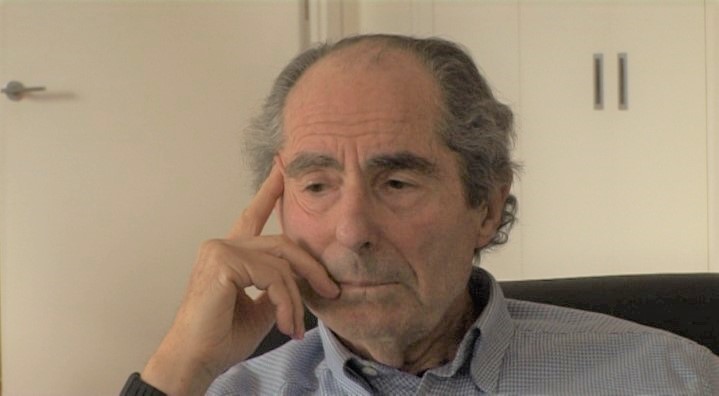John Updike is, I think, our contemporary colossus. John died two years ago... two years ago this month. And he was a giant. He was a giant. There was nothing... no... there was nothing he couldn't write, which is to say he could find the sentences for anything. He could describe anything. He once sent me an essay he wrote, or a little... a little personal essay that he wrote about going to a football manufacturing plant in... maybe in Pennsylvania, where they manufactured American footballs. And he described how the footballs were made and what they looked like and so on, and that's hard to do. It's very hard to do without sounding... sounding like an instruction booklet. And... so even that... he could write even that. He was a great writer of the erotic. He dared... he had... I don't know if he had more audacity than I have, but I sometimes thought he did. He... in his... one of his big books of criticism, he begins the book with some short pieces. And one of the short pieces, you're reading along and you get to page 10, is a description of his neighbour's wife's vagina, as he imagines it. And he does with his neighbour's wife's vagina what he does with that football. You could make one when you're finished reading it.
Then he could do colossal scenes. I... I was talking about the erotic scenes, they're... there are wonderful erotic scenes in Rabbit is Rich. And he could write about illness as he did in Rabbit at Rest. There was no subject that turned his prose off. Or to put it another way, every subject turned his prose on. He was a... he was a fancy dan, too. He could be very fancy. He could... he could be to the... to the English sentence what the Harlem Globetrotters are to the basketball. He could... he could put it anywhere. He could write short stories, beautiful short stories. John had the ability to take an experience that he'd had the night before and the next day turn it into fiction. Which didn't bear any surface resemblance at all to what had happened the night before, but he was inspired by an event or a person and he... he knew how to turn the thing to make it into fiction that stood on its own feet, you know. He could write essays. He wrote... he's... he's as good a... in his time, he was as good a critic as anybody. Then he wrote that brilliant piece on Ted Williams, the great baseball player, when he went out one day to see the Red Sox play, it was Williams' last day in the Major Leagues and he described that day when Williams on his last at-bat got a home run. It's called Hub Fans Bid Kid Adieu. Wonderful. He could invent headlines. And then there are the novels. The great ones to my mind are... are the last two Rabbit books: Rabbit is Rich and Rabbit at Rest. But they're all interesting. And there's a... an obscure book called Roger's Version, about computers, which he wrote before any of us even knew what a computer was, which is wildly impressive, you know. So he was... it was good running in a race alongside John Updike. It's good for writers to have great contemporaries because you can't slough off and we... in my lifetime, we've had a... a powerful American literature. And there are... not everybody's a giant as Updike is. Not everybody's a giant as Bellow was, but there... there's a lot of very strong talent.






